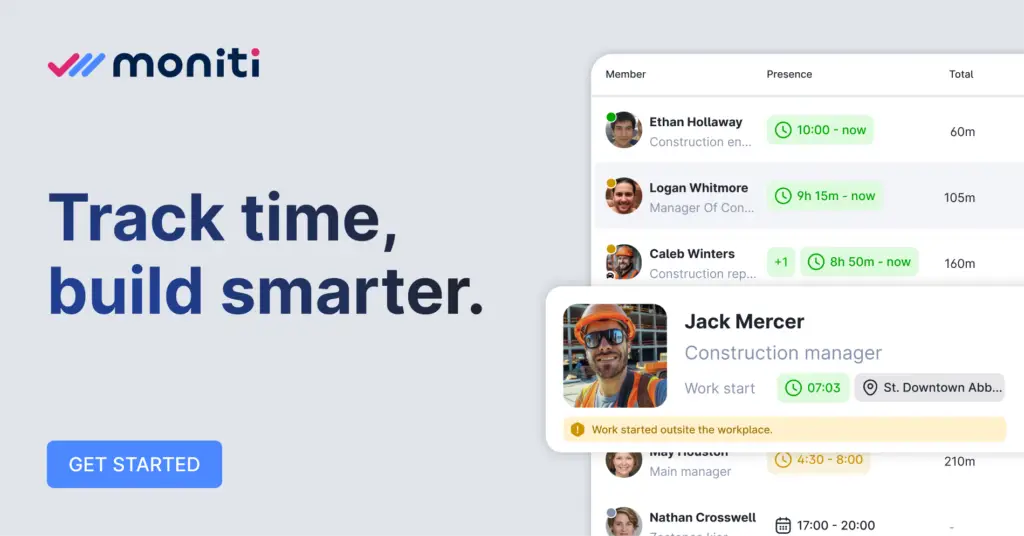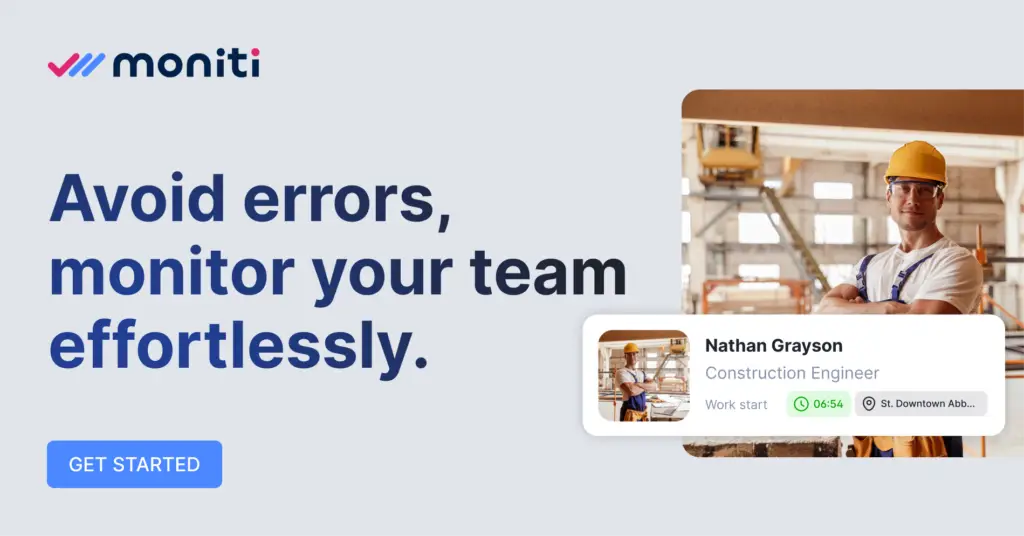Table of Contents
How do you choose the best construction tools for task delegation and time tracking?
Construction projects are complex operations requiring precision, teamwork, and effective management of both time and resources. Choosing the right tools is essential—not just for the physical tasks but also for the organization and coordination of the team. Tools that prioritize task delegation and time tracking can transform how efficiently construction sites operate, reducing delays and optimizing productivity.
Selecting tools isn’t just about their functionality in physical work; it’s also about how they integrate into your overall project management strategy. Here are five critical factors to consider when choosing construction tools, with a focus on streamlining operations through task delegation and time tracking.
1. Functionality and Compatibility
When choosing construction tools, their primary functionality is, of course, a critical factor. However, you should also consider how well these tools integrate with the tasks at hand and other equipment or systems on site. Key considerations include:
- Specialized vs. General Purpose Tools: Choose tools that match the specific needs of your project to avoid inefficiencies or unnecessary complexity.
- Interoperability: Tools that work seamlessly with existing construction software, such as task management platforms or time tracking apps, are highly valuable.
- Digital Integration: Tools that support digital tracking, such as smart tools that log usage or productivity data, can enhance time tracking and provide valuable insights.
For example, pairing traditional construction tools with modern task delegation apps ensures smoother workflows and improved coordination across teams.
2. Ease of Task Delegation
In a fast-paced construction environment, ensuring that tasks are assigned clearly and efficiently is crucial. Tools that facilitate task delegation can save time and reduce confusion. Look for:
- Clear Role Assignments: Use tools or apps that allow managers to assign specific tasks to individuals or teams directly.
- Automated Alerts: Tools with built-in notifications keep workers informed about their responsibilities or changes in priorities.
- Real-Time Updates: Systems that provide live updates help ensure everyone is aligned, minimizing downtime caused by miscommunication.
Task delegation isn’t just about technology—it’s about ensuring that everyone knows their role and has the tools they need to succeed. Combining physical construction tools with apps can enhance clarity and accountability.
If you want to find out more, you should also read this article How to optimize ROI with accurate time tracking?
3. Time Tracking
and Productivity Monitoring
Time is one of the most valuable resources on a construction site, making time tracking tools indispensable. When selecting tools, consider:
- Built-In Time Tracking: Choose software-integrated tools that allow workers to log hours spent on specific tasks directly.
- Data Insights: Tools that provide detailed reports on time allocation can help identify bottlenecks and improve future scheduling.
- GPS Tracking: For projects spanning multiple sites, GPS-enabled time tracking can verify worker locations and ensure timely task completion.
These features not only help managers understand how time is being used but also support accurate billing and labor cost calculations, making projects more financially efficient.
4. Durability and Maintenance
Construction tools are often exposed to harsh conditions, making durability a top priority. However, durability extends beyond physical tools to the reliability of software solutions:
- Physical Tools: Opt for high-quality, durable tools that can withstand daily wear and tear. Low-quality tools can lead to frequent breakdowns, causing project delays.
- Software Reliability: Task delegation and time tracking apps must be robust and user-friendly, ensuring they don’t crash or cause downtime during critical operations.
- Maintenance Support: Look for tools with good warranties, easy maintenance schedules, or dedicated customer support for software platforms.
Investing in tools that last and require minimal upkeep can save both time and money in the long run, ensuring that your project runs smoothly.
5. Scalability and Future-Proofing
Construction projects often grow in scope, requiring tools that can adapt to increasing demands. When choosing tools, consider their scalability and ability to meet future needs:
- Flexible Features: Opt for tools that offer modular functionality, allowing you to add or upgrade features as needed.
- Cloud-Based Systems: For task delegation and time tracking, cloud-based platforms enable scalability and real-time collaboration across multiple sites.
- Long-Term Cost Efficiency: Choose tools that provide value over time, even as your projects become larger or more complex.
For example, investing in task delegation tools that can handle both small projects and multi-site operations ensures you’re prepared for growth without having to overhaul your systems.
Practical Application: Task Delegation and Time Tracking
in Action
To see these factors in action, consider a scenario where a construction manager is overseeing a project with multiple crews working on different aspects of the build. By using tools that prioritize task delegation and time tracking:
- Task Assignments Are Clear: The manager uses a task delegation app to assign each crew specific roles, from framing to electrical work.
- Real-Time Updates: When delays arise, updates are communicated instantly through the app, allowing crews to adjust their priorities without confusion.
- Time Tracking Identifies Bottlenecks: After reviewing time tracking data, the manager notices that electrical tasks consistently take longer than planned. This insight helps adjust schedules or allocate additional resources to address the issue.
By combining traditional construction tools with digital platforms, the manager ensures that the project stays on track while maintaining high levels of productivity.
Moniti as Your
efficiency ally
Optimizing construction projects goes beyond choosing high-quality tools—it requires effective solutions to ensure smooth operations and successful project outcomes. Task delegation and time tracking, once considered supplementary, are now essential for managing modern construction environments.
Moniti.app stands out as a comprehensive solution that integrates task scheduling and real-time tracking into one platform. By using tools like Moniti, construction managers can monitor employee hours, streamline task assignments, and optimize workflows, ensuring every resource is utilized effectively and every project phase runs seamlessly.
Implementing Moniti not only enhances operational efficiency but also supports a well-structured, forward-thinking strategy for construction project management. Whether managing large-scale developments or smaller projects, leveraging these tools can make all the difference in maintaining balance and improving overall performance.





